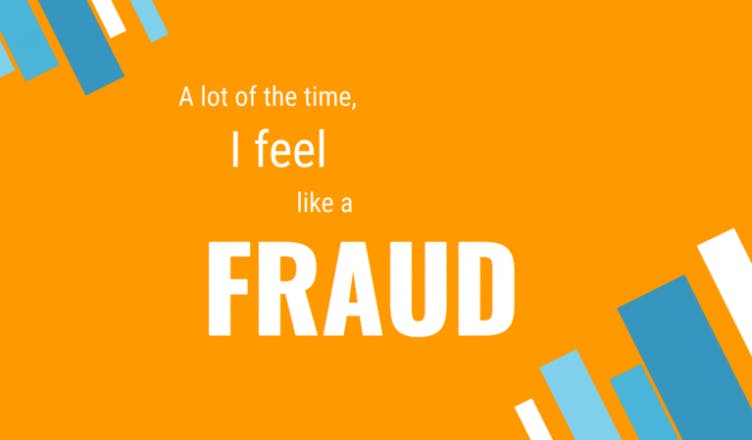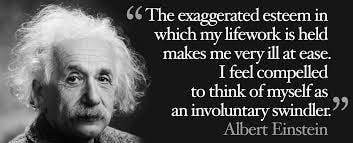
We’ve all felt like imposters at some points in our lives, right?. If you think you haven’t or you are not sure, try asking yourself these questions :
Do you secretly worry that people will find out that you are not as capable as they think you are?
Do you often shy away from taking up new roles because of self-doubt?
When people compliment you, do you respond with “nuh, its nothing , it is no big deal”?
Do you believe that other people are smarter than you are?
If this is you, then you’ve felt like an imposter at some point in your life.
In this article, I’ll introduce you to what Imposter syndrome is, its signs and ways in which you can overcome it.
What is Imposter Syndrome
Imposter Syndrome is a psychological pattern that makes people doubt their accomplishments and have a persistent, often internalized fear of being exposed as a fraud.
It makes you feel like your achievements are due to luck or external factors and not really due to your ability.
What are the Symptoms?
1. Feeling like a “Fraud”
Feeling like you are not qualified or if you are qualified, you feel like you are getting extra attention or praise that is not necessary.
2. Attributes Success to luck
You believe that your success is merely the result of luck or it just kind of happened.
3. Fear of being found out
You worry that the people who value you will eventually find out that you are not as smart as they thought you are.
4. Discounting Success
You downplay your achievements by brushing off compliments, minimizing a win or devaluing your contributions .
Who are the victims?
You might think that you are the only one with imposter syndrome, but hey, YOU ARE NOT ALONE! Imposter syndrome is very common among people who are new to their roles, those who are just starting out, or those exploring new fields.
Interestingly, many of the most successful people in the world have struggled with imposter syndrome. They have also battled with the thoughts that they are a fraud, or incompetent, despite having a track record of accomplishments.
Take a look at some of them below:
Maya Angelou
Maya Angelou once admitted:

Albert Einstein
Albert Einstein, recognised as one of the most influential scientists of the last 500 years, had a case of Imposter Syndrome in his later years.

The fact that many accomplished people struggle with it, and still achieve many amazing things, signifies that you can overcome imposter syndrome.
How do you Overcome it?
This syndrome can block your journey, slow your progress or even make you want to quit. That is why it is important to know how to deal with it.
Here are some of the ways that can help you:
1. Own your accomplishments: Learn to own your own story and speak up about it. “It is not bragging if it is based on facts”. Appreciate your own achievements and learn to be comfortable about sharing your success to others. Be your biggest fan!
2. Track your success: Write down your accomplishments, whether big or small. Go through them after some time or whenever you feel inadequate. You will be reminded that if you were a fraud, you would not have been able to achieve any of them. This also helps you assess yourself by identifying your strengths and weaknesses.
3. Keep Upskilling: When you identify your areas of weakness or if you feel you are not yet qualified , upskill yourself. Keep learning, keep growing, ask those questions - you will eventually become good at it.
4. Be Confident: Be confident about your skills and do not shy away from taking up challenges. Confidence matters just as much as your competence.
5. Talk to people in your field: Sharing your experience with people in your field will not only comfort you that you are not alone, but will also help you learn the tips they use to overcome that feeling. These tips could work out for you too.
6. Recognize unhealthy perfectionism: Remember you are not perfect and no one is! It is okay to make mistakes. They should not stop you from carrying on. We can not all achieve perfection but you can strive to be the best you can possibly be.
Final Thoughts
Most people often ask, “Can one completely get rid of imposter syndrome?” I don’t think so!
I believe that as long as you are achieving things or exploring new grounds, the feeling will always come - so, you can only learn how to live with it. I mostly speak about Imposter syndrome but it still affects me.
As someone once said , "We know what the feeling is called. We know others suffer from it. We know a little bit about why we feel this way. And we now know how to handle it: Invite it in and remind ourselves why it’s here and what it means".
So anytime you hear that negative voice in your head, pause for a minute, put a smile on your face and say, “Welcome back old friend. I’m glad you are here. Now, let’s get to work”.
Thank you for taking your time to read this article. You can also listen to this Podcast on this very same topic. Enjoy! If you find these useful, like the article and follow me on Twitter